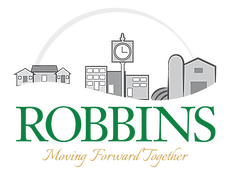Related Posts
“Moving Forward Together”: Robbins is on the Rise

In the 1990s, a poultry-processing center closed and in 2008, a massive fire destroyed the Milliken textile mill, putting 1,100 out of work. The 286,000-square-foot mill, where Robbins native John Edwards once stood to announce his presidential bid, became a pile of ashes on Kennedy Street.
“For many, it was our history — or future — that went up in smoke that day,” says David Lambert, 30, town manager since 2016, who grew up in Robbins. “We were uncertain how to move forward. People lost hope in our community.”
Lambert has deep roots in Robbins. His father became principal of the elementary school. His grandfather was a business owner. He and his wife are raising two young sons in Robbins. A graduate of UNC Greensboro, Elon University’s law school and UNC Chapel Hill with a master’s in public administration, Lambert has a phoenix-like vision for this town.
“Robbins is my home. I believe that it has something worth saving,” he says.
“It’s a beautiful place; rolling countryside. Agriculture is a big piece, but a lot of their population was manufacturing based,” says Pat Corso, executive director of Moore County Partners in Progress.
Investing in infrastructure is one of his top goals, along with making Robbins a destination for outdoor recreation and tourism, as a nexus between Moore’s golf-centered communities and the N.C. Zoo in Asheboro. The headquarters of well-known Seagrove Pottery is 13 miles from Robbins, up N.C. 705.
“We have to change the narrative,” Lambert says. “The question isn’t ‘How will Robbins survive?’ Instead, it is ‘What specific steps do we need to take to make Robbins thrive?’”
He says the town is focusing on small wins. The mill site is being cleaned up. A greenspace has been created downtown. A transition in ownership has led to the restoration of downtown buildings, and new businesses — including a hotel — are planned. Situs, a financial underwriting company with offices in major U.S. cities and Europe, has opened a branch in Robbins. Flair Enterprises, a division of Calgary, Alberta-based Minhas Furniture, opened an upholstery factory near Robbins in 2017.
“Our success, just like the mill site, will not happen by doing nothing. It will only occur when we roll up our sleeves and help ourselves,” Lambert says. “We certainly want to recruit large businesses to bring life to many of our vacant factory buildings, but we also are focusing on entrepreneurship development.”
A business incubation/entrepreneurship hub would benefit the town, as would a microloan program or 90-10 loan to help provide capital to those looking to start a business, Corso says.
Attitude also factors into the Robbins equation.
“I fully believe,” Lambert says, “that once we, as a community, decide that we are no longer content with being passive with our economic future, we will see even greater things happen.”
(Article by Kathy Blake. 3rd in a series of 3 articles from Business North Carolina’s Moore County Spotlight, a special section in the magazine’s January 2019 issue. Read the full article here.)
Related Posts
Business North Carolina Features Moore County Golf in...
11 April 2024
New Highway Signs Recognize Moore County as Home...
02 April 2024
Pinehurst-Southern Pines Micropolitan Ranked #1 in NC and...
04 March 2024
Morganton Park South Shopping Center Closer to Opening
21 February 2024